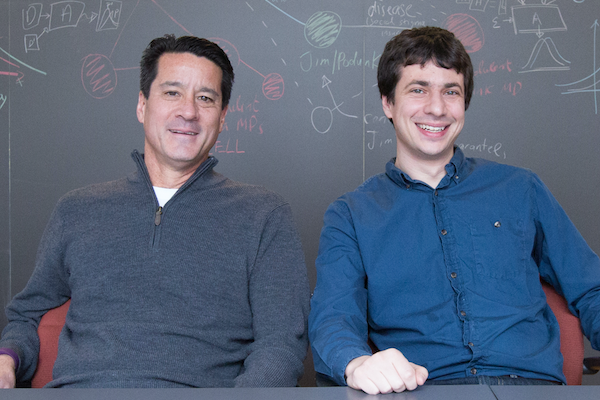Title : Making algorithms fair
link : Making algorithms fair
Making algorithms fair
Fairness is elusive, even in algorithms. "Color blindness" doesn't do the trick, since minority populations may differ in other ways from majority populations.
My attention was drawn to this news story about ongoing work by U. Penn computer scientists: Combatting ‘Fairness Gerrymandering’ with Socially Conscious Algorithms
And here's the article on which the story is based:
My attention was drawn to this news story about ongoing work by U. Penn computer scientists: Combatting ‘Fairness Gerrymandering’ with Socially Conscious Algorithms
 |
Preventing Fairness Gerrymandering: Auditing and Learning for Subgroup Fairness
(Submitted on 14 Nov 2017 (v1), last revised 8 Jan 2018 (this version, v3))
The most prevalent notions of fairness in machine learning are statistical definitions: they fix a small collection of pre-defined groups, and then ask for parity of some statistic of the classifier across these groups. Constraints of this form are susceptible to intentional or inadvertent "fairness gerrymandering", in which a classifier appears to be fair on each individual group, but badly violates the fairness constraint on one or more structured subgroups defined over the protected attributes. We propose instead to demand statistical notions of fairness across exponentially (or infinitely) many subgroups, defined by a structured class of functions over the protected attributes. This interpolates between statistical definitions of fairness and recently proposed individual notions of fairness, but raises several computational challenges. It is no longer clear how to audit a fixed classifier to see if it satisfies such a strong definition of fairness. We prove that the computational problem of auditing subgroup fairness for both equality of false positive rates and statistical parity is equivalent to the problem of weak agnostic learning, which means it is computationally hard in the worst case, even for simple structured subclasses.
We then derive two algorithms that provably converge to the best fair classifier, given access to oracles which can solve the agnostic learning problem. The algorithms are based on a formulation of subgroup fairness as a two-player zero-sum game between a Learner and an Auditor. Our first algorithm provably converges in a polynomial number of steps. Our second algorithm enjoys only provably asymptotic convergence, but has the merit of simplicity and faster per-step computation. We implement the simpler algorithm using linear regression as a heuristic oracle, and show that we can effectively both audit and learn fair classifiers on real datasets.
Thus Article Making algorithms fair
that is all articles Making algorithms fair This time, hopefully can provide benefits to all of you. Okay, see you in another article post.
You now read the article Making algorithms fair with the link address https://americanjobsandvicinity.blogspot.com/2018/02/making-algorithms-fair.html
0 Response to "Making algorithms fair"
Post a Comment